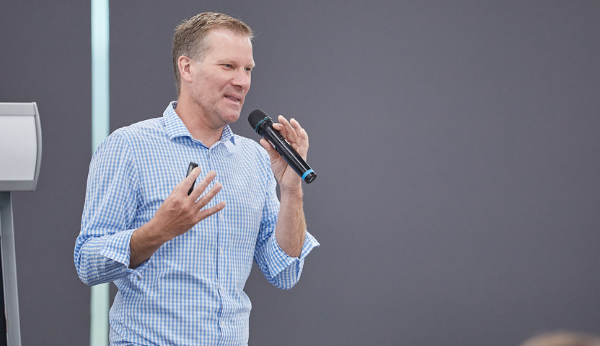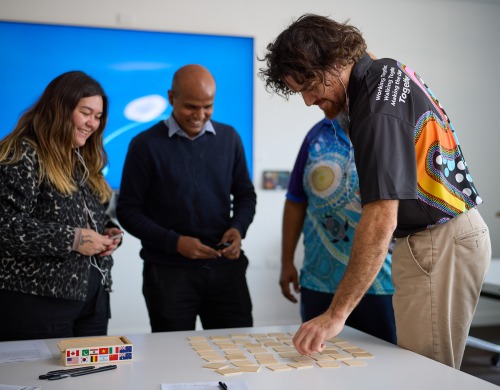OPINION: Adrian Munro, Richmind WA Chief Executive Officer
As seen in The West Australian, 21 May 2025: “Men’s Mental health in crisis”, page 37
On Saturday, I opened my newsfeed like any other morning, wondering what world news had occurred overnight, and, like most, I was shocked and saddened to see the tragic passing of former West Coast Eagles player Adam Selwood.
I’m a diehard Eagles fan, always have been, and Adam was a key player in the golden 2000s era – truly respected by everyone in the AFL.
Sadly, Adam’s twin brother and former AFL player, Troy Selwood, died by suicide only a few months ago. Along with many others in our community, these deaths have impacted me significantly. Maybe it’s because I’m only a few years older than Adam and Troy, and I think of my kids growing up without their dad, or because I work in mental health and am confronted by suicide so often. Maybe it’s because I also have a twin brother, and I can understand this unimaginable and unspeakable pain that only twins could understand. Perhaps it’s because of my strong connections with men in my community and my understanding of the mental distress that so many men experience, often in silence. Maybe it’s because I’m just tired and heartbroken that there appears to be no change or progress in reducing men’s suicide.
I have seen the usual social media posts go out to honour these men, recalling their greatest moments on the field and passing on condolences to the family. Sporting clubs are now well versed in such tragedies, and they honour their lost with great respect. How telling and sad – clubs are so familiar with suicide amongst players and former players that their responses are well-practised. It is beyond devastating that suicide is so prolific amongst sportspeople. Instead, we, as a collective community, need to be asking how we can stop these preventable deaths.
Men account for 75% of deaths by suicide each year in Australia – 2,419 in 2023, almost double the entire road toll in Australia in the same year (1,266). What is more staggering is the number who die in the prime of their life, between 18-44, leaving parents, partners and children behind. Despite this, none of our State or Federal Mental Health and Suicide Prevention Plans have men as a target cohort. How can this be?
As a society, have we given up trying to reverse the rates of suicide amongst young men? Is it not a priority, or is it just too hard? Where are our politicians speaking in a way that reflects the seriousness of this problem and promising to take action that is proportionate? My question for our Premiers and Prime Ministers is this: How many men need to die by suicide before they declare this a national emergency, convene a National Cabinet meeting and take genuine action?
Surely, it’s time to develop a Boys’ and Men’s Suicide Prevention Plan in Australia. The AFL and other peak sporting bodies like Cricket Australia should play a lead role in tackling men’s suicide and advocating for this leadership from Government?
We don’t know why males account for 75% of suicides in Australia, and there are likely many factors. However, we know that men are half as likely as women to access primary health care services, according to the Australian Institute of Health and Welfare.
The current health messaging to men is not bringing about change. It is not breaking the stigma around mental health and it is not increasing the levels of men accessing health services. Simply, it is not working.
In the coming days, we will see clips of the Selwoods in their playing days, the famous one of them in a scuffle at Subiaco Oval the first time they played against each other in the AFL. We may also see coverage of Adam’s funeral, with powerful and moving speeches from family and former players. And this footage will steel my resolve to be a voice in seeing this country tackle men’s suicide in a serious way. One death is one too many.
If you or someone you know needs urgent support, please contact the Suicide Call Back Service on 1300 659 467, the Kids Helpline on 1800 55 1800, the MHERL on 1300 555 788 or Lifeline on 13 11 14.
Adrian Munro is the Chief Executive Officer at Richmind WA (formerly Richmond Wellbeing), a not-for-profit that has supported the mental health and wellbeing of Western Australians for 50 years with innovative and inclusive services.


